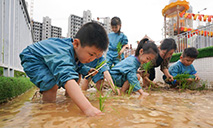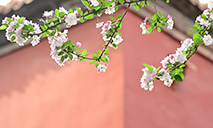Residents pick tea leaves in Medog County, China's Tibet
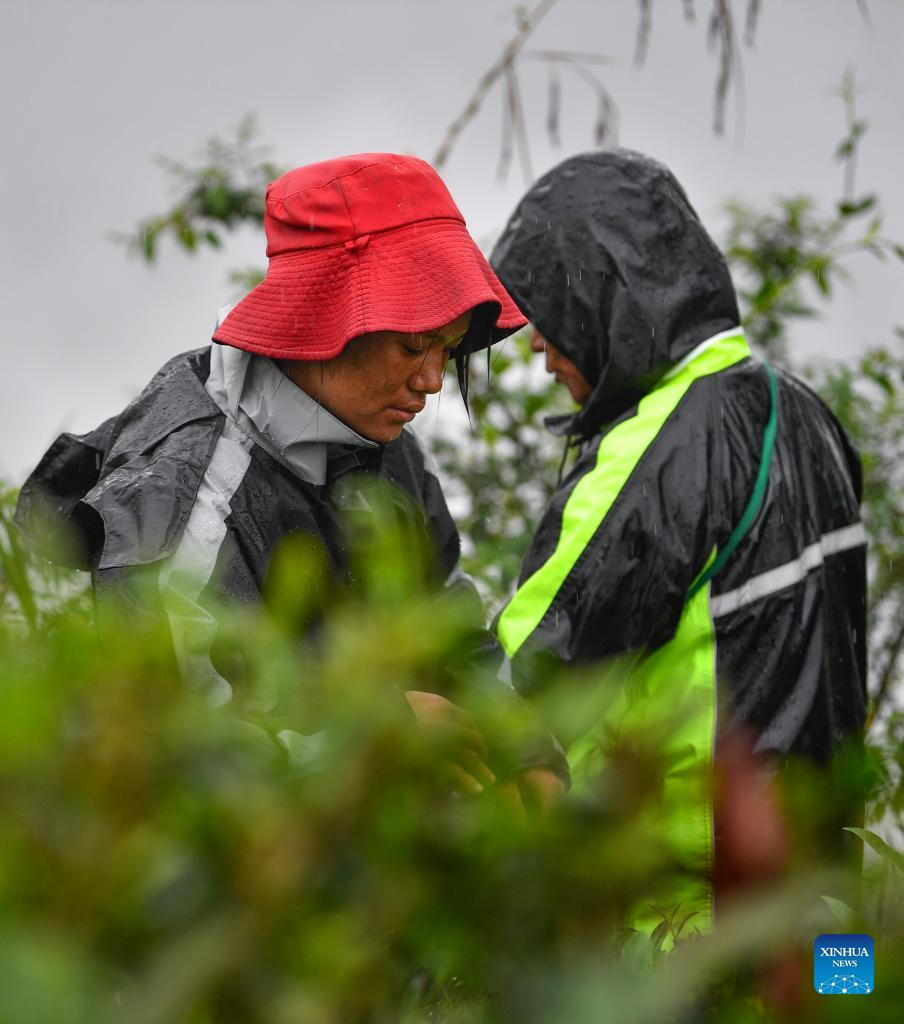
Residents pick tea leaves at Hezha Village of Dexing Township in Medog County, southwest China's Tibet Autonomous Region, April 16, 2022. Medog's moderate humidity and altitude makes it suitable for tea farming. Since the first experimental tea plantation was built here in 2012, 102 more plantations have been set up. Now, over 10,000 people of 39 villages engage in tea planting and have realized a large increase in their incomings. (Xinhua/Jigme Dorje)

Residents pick tea leaves at Hezha Village of Dexing Township in Medog County, southwest China's Tibet Autonomous Region, April 16, 2022. Medog's moderate humidity and altitude makes it suitable for tea farming. Since the first experimental tea plantation was built here in 2012, 102 more plantations have been set up. Now, over 10,000 people of 39 villages engage in tea planting and have realized a large increase in their incomings. (Xinhua/Jigme Dorje)
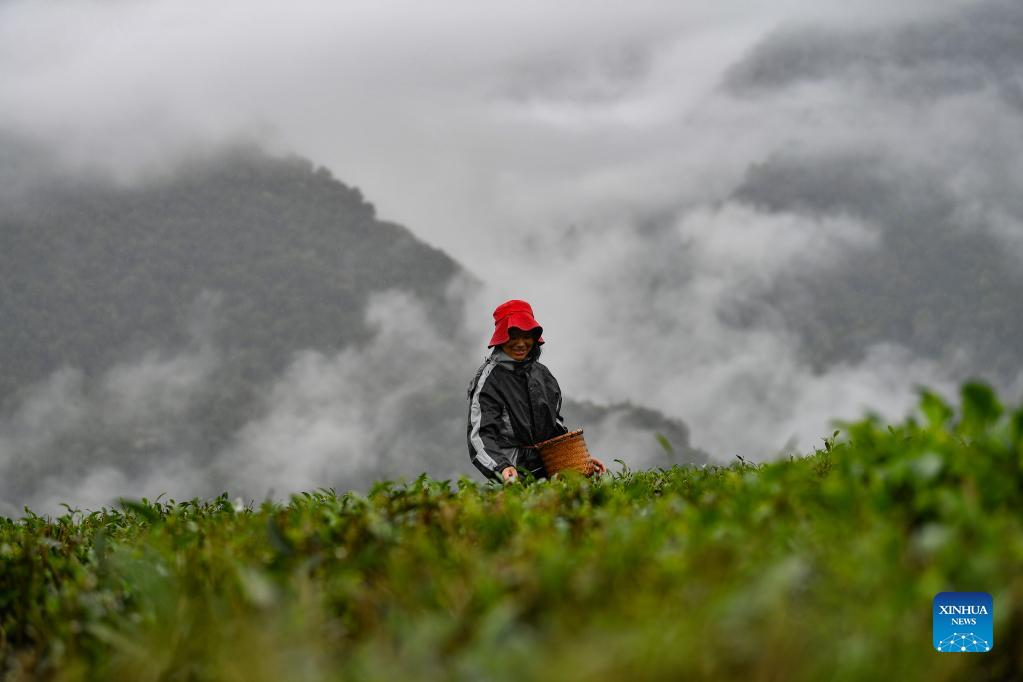
Resident Gongsang Lamu picks tea leaves at Hezha Village of Dexing Township in Medog County, southwest China's Tibet Autonomous Region, April 16, 2022. Medog's moderate humidity and altitude makes it suitable for tea farming. Since the first experimental tea plantation was built here in 2012, 102 more plantations have been set up. Now, over 10,000 people of 39 villages engage in tea planting and have realized a large increase in their incomings. (Xinhua/Jigme Dorje)

Resident Gongsang Lamu picks tea leaves at Hezha Village of Dexing Township in Medog County, southwest China's Tibet Autonomous Region, April 16, 2022. Medog's moderate humidity and altitude makes it suitable for tea farming. Since the first experimental tea plantation was built here in 2012, 102 more plantations have been set up. Now, over 10,000 people of 39 villages engage in tea planting and have realized a large increase in their incomings. (Xinhua/Jigme Dorje)

A resident picks tea leaves at Hezha Village of Dexing Township in Medog County, southwest China's Tibet Autonomous Region, April 16, 2022. Medog's moderate humidity and altitude makes it suitable for tea farming. Since the first experimental tea plantation was built here in 2012, 102 more plantations have been set up. Now, over 10,000 people of 39 villages engage in tea planting and have realized a large increase in their incomings. (Xinhua/Sun Fei)

Resident Gongsang Lamu picks tea leaves at Hezha Village of Dexing Township in Medog County, southwest China's Tibet Autonomous Region, April 16, 2022. Medog's moderate humidity and altitude makes it suitable for tea farming. Since the first experimental tea plantation was built here in 2012, 102 more plantations have been set up. Now, over 10,000 people of 39 villages engage in tea planting and have realized a large increase in their incomings. (Xinhua/Sun Fei)
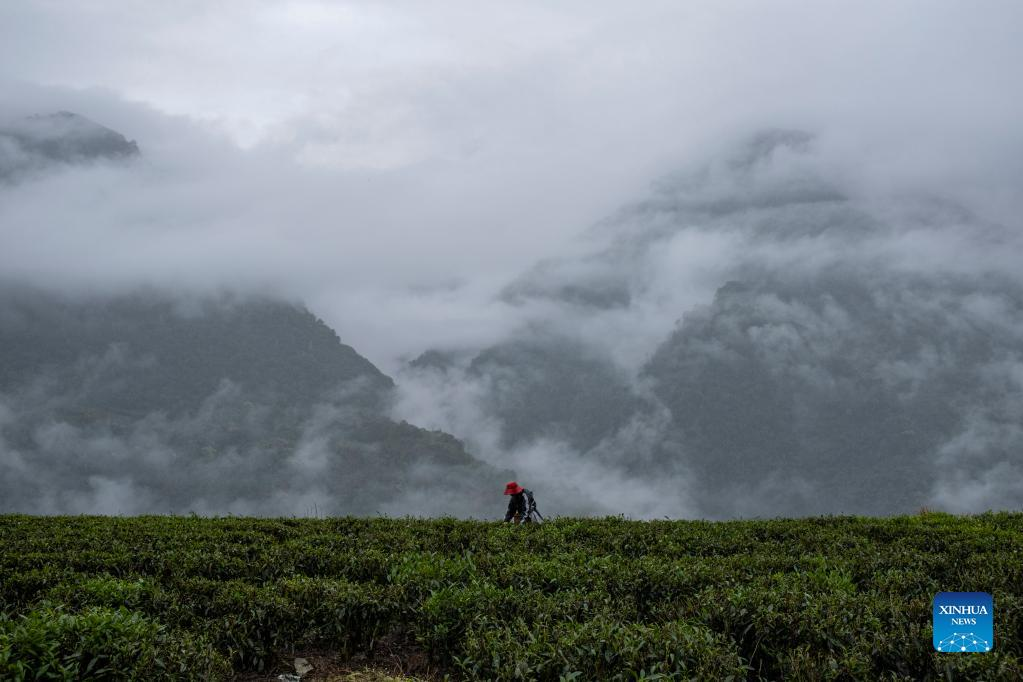
A resident picks tea leaves at Hezha Village of Dexing Township in Medog County, southwest China's Tibet Autonomous Region, April 16, 2022. Medog's moderate humidity and altitude makes it suitable for tea farming. Since the first experimental tea plantation was built here in 2012, 102 more plantations have been set up. Now, over 10,000 people of 39 villages engage in tea planting and have realized a large increase in their incomings. (Xinhua/Sun Fei)
Photos
Related Stories
- Helicopter rises on high to check power line in SW China’s Tibet
- A glance of Lhoba culture in Mainling County, SW China's Tibet
- Beautiful Tibetan village decorated with apricot blossom in Sichuan
- Teenagers in pastoral areas of Tibet attend taekwondo camp
- Tibet autonomous region fosters new growth areas of foreign trade
Copyright © 2022 People's Daily Online. All Rights Reserved.









